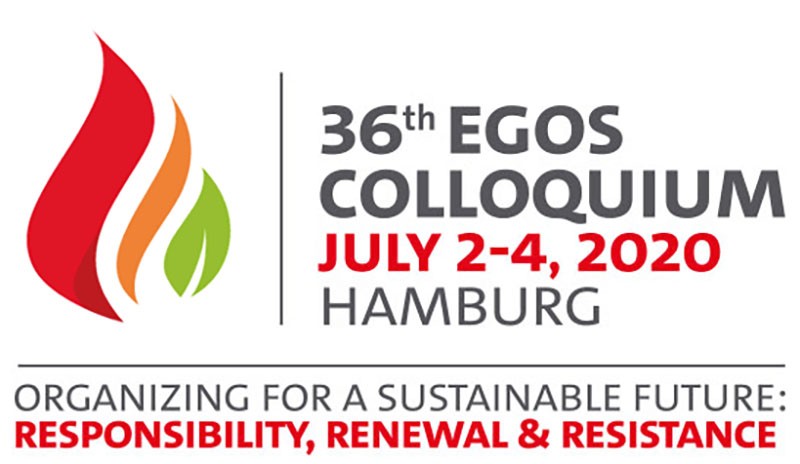Sub-theme 36: Organizing for Climate Change: The Politics of Mitigation, Adaptation, and Suffering
Call for Papers
Climate change has now fully entered the human psyche. Current responses oscillate between utopia and nihilism, with organizations
central in measures to ‘save the planet’, implementing market mechanisms, but also preparing for the coming catastrophe. In
this sub-theme, we are interested in the organizing processes of responses to climate change. These responses can be broadly
classified within the interlinked categories of mitigation, adaptation and suffering. We see these processes as political
in that how and when we mitigate is negotiated, adaptive responses will include some while excluding many others, and the
inevitable suffering of escalating climate change will be unequally distributed.
Possible topics for this
sub-theme include, but are not limited to:
The politics of mitigation
Mitigation
refers to efforts to reduce carbon emissions in order to slow and decrease the severity of climate change. Current scientific
estimates suggest that to avoid dangerous climate change at least 80% of known fossil fuel reserves must remain in the ground
(Rockström et al., 2017). And yet, the fossil fuel industry continues to expand, exploring deeper (off shore drilling) and
dirtier (tar sands) fossil fuels (Wright & Nyberg, 2015). This continuation of fossil fuel use is balanced against proposals
for carbon capture and storage (CCS) as well as speculative technologies such as geo-engineering (Hamilton, 2013). Against
this commitment to ‘business as usual’, we are also witnessing the rise of social movements of resistance against new carbon
frontiers and for fossil fuel divestment (Klein, 2014). In exploring this theme, possible topics include:
the organization of fossil fuel hegemony by corporations and governments (Nyberg, Spicer, & Wright, 2013) as well as the counter-movements of resistance;
the justifications and consequences of speculative technologies, and ethical arguments underlying them; and,
the global organization of climate negotiations (e.g. Paris Agreement) and populist movements against them.
The politics of adaptation
Through adaptation, societies,
communities and organizations seek to adjust to a changing climate so as to reduce harm and costs. New forms of collaboration
are central in adapting to a changing climate and increasingly extreme weather events. However, while the rhetoric of climate
adaptation emphasises commonality, this ignores the reality of on-going inequality and underdevelopment (Mann & Wainwright,
2018). Possible topics within this theme include:
the local organization of adaptation, and the negotiation of inclusion/exclusion as well as costs/benefits;
the mobilisation of radical, non-human or indigenous knowledges and organizational forms to live within a climate changed world (Conty, 2018); and,
adaptation in situations of social breakdown (e.g. elite, survivalist and ‘prepper’ communities and the embrace of social exit).
The politics of suffering
The final category of climate responses is suffering, that is how
people endure the adverse impacts of climate change. There is an obvious unequal distribution of responsibility, with those
with most resources likely to face the least consequences. Within this category, we are interested in concepts of social suffering,
grief (Head, 2016), and pre-traumatic stress (Coyle & Van Susteren, 2012), but also more drastic responses to limit suffering
in facing climate change. Potential topics here include:
the unequal distribution of suffering in current and future climate disruptions;
the potential and limits of democratic states to deal with mass suffering (e.g. climate wars and large volumes of climate refugees); and,
the psychological dimensions of mass suffering, loss and grief in an era of escalating climate disruption.
This sub-theme is open to submissions that
focus on a broad variety of organizations and social actors involved in the politics of climate change including: corporations,
national and regional governments, intergovernmental bodies such as the UN, NGOs, grassroots organizations, resistance movements,
and community groups. We intend to foster a multi-disciplinary exchange of ideas and research around the important topic of
climate change. We invite both empirical and theoretical contributions for an inclusive and engaging sub-theme discussion.
References
- Conty, A.F. (2018): “The Politics of Nature: New Materialist Responses to the Anthropocene.” Theory, Culture & Society, 35 (7–8), 73–96.
- Coyle, K.J., & Van Susteren, L. (2012): The Psychological Effects of Global Warming on the United States. National Forum and Research Report, February 2012. Reston, VA: National Wildlife Federation.
- Hamilton, C. (2013): Earthmasters: Playing God with the Climate. Sydney: Allen & Unwin.
- Head, L. (2016): Hope and Grief in the Anthropocene. Re-conceptualising Human–Nature Relations. London: Routledge.
- Klein, N. (2014): This Changes Everything. Capitalism vs. The Climate. New York: Simon & Schuster.
- Mann, G., & Wainwright, J. (2018): Climate Leviathan. A Political Theory of our Planetary Future. London: Verso Books.
- Nyberg, D., Spicer, A., & Wright, C. (2013): “Incorporating citizens: Corporate political engagement with climate change in Australia.” Organization, 20 (3), 433–453.
- Rockström, J., Gaffney, O., Rogelj, J., Meinshausen, M., Nakicenovic, N., & Schellnhuber, H.J. (2017): “A roadmap for rapid decarbonization.” Science, 355 (6331), 1269–1271.
- Wright, C., & Nyberg, D. (2015): Climate Change, Capitalism, and Corporations. Processes of Creative Self-Destruction. Cambridge: Cambridge University Press.


